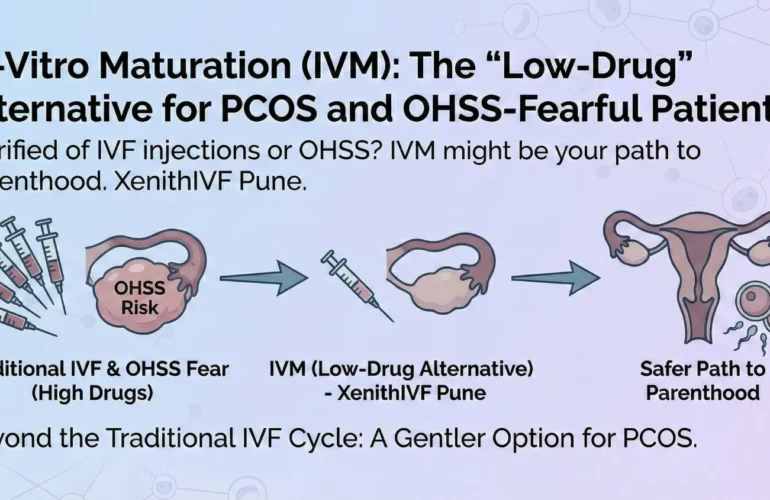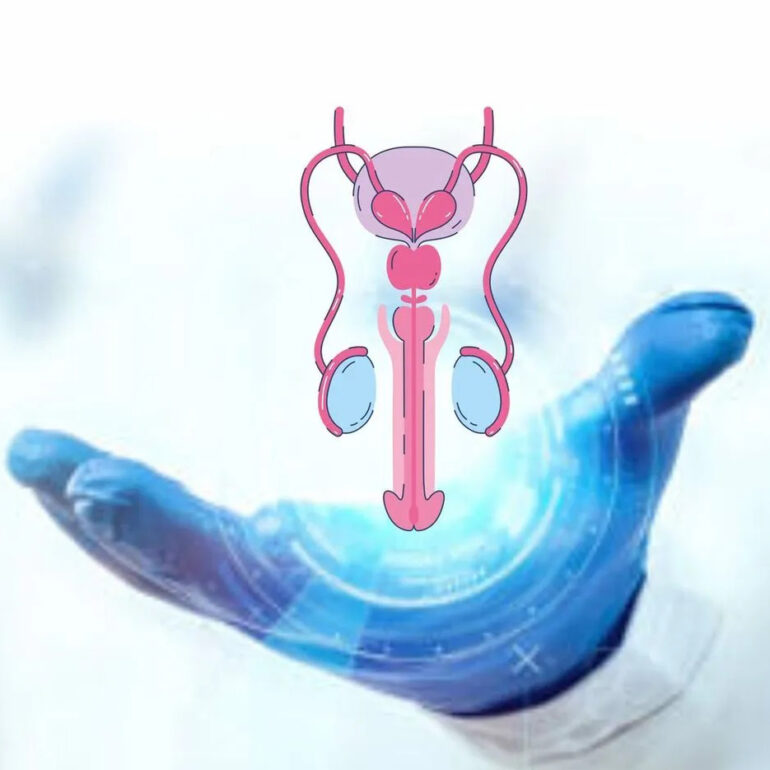Introduction
Reproductive Immunology Therapy is an advanced medical approach that addresses immune-related causes of infertility and recurrent pregnancy loss. At Xenith IVF, we understand that in some cases, the immune system may unintentionally hinder conception or embryo implantation. This therapy involves diagnosing and managing immune system responses that can interfere with a successful pregnancy, especially during In-Vitro Fertilization (IVF) cycles.
Xenith Hope Circle
Join our new WhatsApp community
Table of content
- What Is Reproductive Immunology Therapy?
- Why Is Reproductive Immunology Therapy Needed?
- How Reproductive Immunology Therapy Works
- Benefits of Reproductive Immunology Therapy
- Who Can Benefit from Reproductive Immunology Therapy
- Is Reproductive Immunology Therapy Safe?
- Success Rates with Immunological Infertility Treatment
- Frequently Asked Questions
What Is Reproductive Immunology Therapy?
Reproductive immunology is a specialized field that studies the interactions between the immune system and the reproductive system. In certain individuals, the immune system may mistakenly identify an embryo as a foreign body, triggering an immune response that prevents implantation or causes early miscarriage.

Free Thursday Consultation
Book Your AppointmentReproductive Immunology Therapy aims to detect such immune imbalances through a series of tests and then provide targeted treatments to improve the chances of a successful pregnancy.
Why Is Reproductive Immunology Therapy Needed?
Immune-related infertility is often undiagnosed in couples facing repeated IVF failures, unexplained infertility, or recurrent pregnancy losses. The therapy becomes essential when:
- There is a history of multiple IVF failures despite good-quality embryos
- Recurrent miscarriages occur without clear genetic causes
- There is a diagnosis of autoimmune disorders such as lupus or antiphospholipid syndrome
Understanding how the immune system affects fertility helps us create personalized protocols that enhance embryo implantation and development.


How Reproductive Immunology Therapy Works
The treatment involves a stepwise approach:
- Immune Testing: Specialized blood tests (e.g., NK cell activity, antiphospholipid antibodies, cytokine profiles) are used to identify potential immune system dysfunctions.
- Immunomodulatory Treatment: Based on test results, patients may receive:
- Intralipid infusions
- Low-dose steroids (e.g., prednisolone)
- IVIG (Intravenous Immunoglobulin)
- Anticoagulants like heparin
- Lifestyle modifications and nutritional support to reduce inflammation
Benefits of Reproductive Immunology Therapy
1. Identifies hidden immune factors in infertility
Many couples with unexplained infertility may have underlying immune imbalances that standard fertility tests overlook. This therapy uncovers such issues, allowing for targeted treatment that increases the chances of conception.
2. Increases IVF success rates in immune-compromised patients
For patients whose immune systems may attack or reject the embryo, immunotherapy can help suppress these reactions. This improves embryo implantation and overall success rates of IVF cycles.
3. Reduces the risk of miscarriage in women with immune-related disorders
Women with autoimmune disorders or abnormal immune markers often face early pregnancy losses. Immunomodulatory treatment helps regulate immune activity, supporting a healthy and sustained pregnancy
4. Supports embryo implantation and healthy pregnancy progression
By optimizing the uterine immune environment, the therapy encourages successful embryo attachment to the endometrium. This leads to better pregnancy outcomes and reduced complications in early gestation.
5. Customizes fertility treatment plans based on immune profile
Every patient’s immune response is unique. Reproductive immunology enables a personalized treatment approach, enhancing both safety and effectiveness of assisted reproduction.
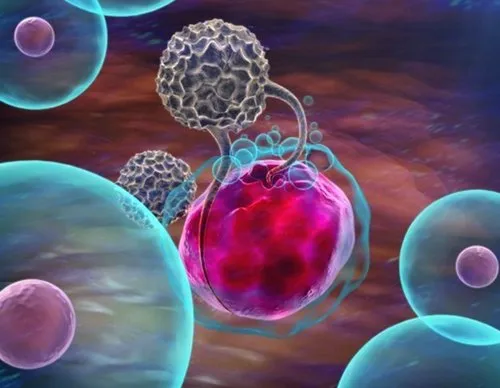
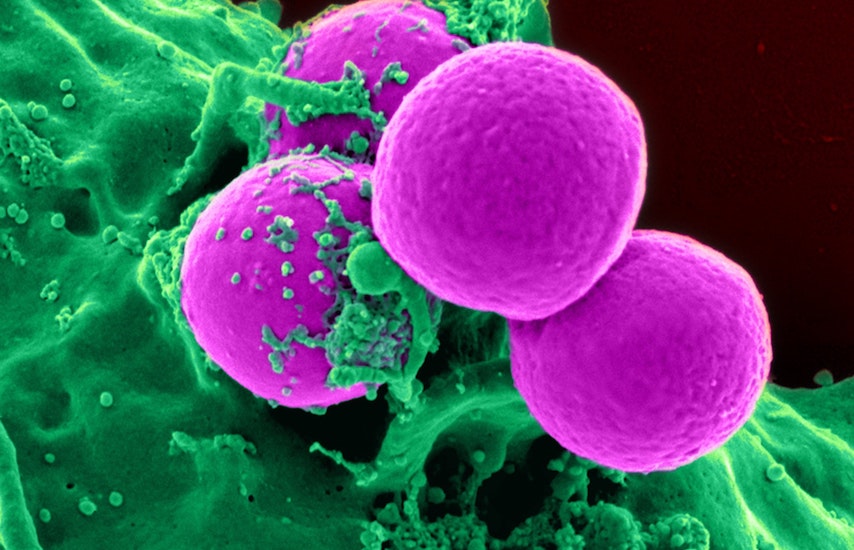
Who Can Benefit from Reproductive Immunology Therapy
1. Women with recurrent IVF failures or miscarriages
Patients with multiple failed IVF attempts or repeated miscarriages despite transferring healthy embryos may have immune-related issues that this therapy can address.
2. Couples with unexplained infertility
When standard fertility evaluations return normal results, immune dysfunction may be the hidden cause. Reproductive immunology can uncover these factors and guide corrective treatment.
3. Patients with autoimmune conditions (e.g., Hashimoto’s, lupus)
Autoimmune disorders can increase the risk of embryo rejection or blood clotting issues. Therapy helps control these responses to improve pregnancy outcomes.
4. Women with chronic inflammation or abnormal NK cell levels
Elevated Natural Killer (NK) cells or other pro-inflammatory markers in the uterus can prevent implantation. Immunotherapy can rebalance the immune environment for a more receptive endometrium.
5. Women with a history of early pregnancy losses
For those who lose pregnancies within the first few weeks, immune-related rejection could be a cause. This therapy helps prevent immune attacks on the embryo during early development.
Is Reproductive Immunology Therapy Safe?
Yes, especially when guided by fertility experts trained in reproductive immunology. At Xenith IVF, our fertility specialists follow evidence-based protocols tailored to your immune profile. All medications and interventions are administered with strict safety guidelines to ensure the well-being of both mother and baby.
Success Rates with Immunological Infertility Treatment
While success varies depending on the underlying condition, many patients have seen significant improvements in embryo implantation and pregnancy outcomes after immune treatment. Reproductive immunology offers renewed hope for couples who have struggled with conventional fertility treatments.

Conclusion
Reproductive Immunology Therapy is a powerful tool in overcoming immune-related fertility challenges. At Xenith IVF, our holistic approach combines advanced diagnostics with tailored therapies to support your journey to parenthood.
Recurrent miscarriages, multiple failed IVF cycles, or known autoimmune conditions may indicate the need for immune testing.
Yes, it is often integrated into IVF cycles to improve implantation and reduce miscarriage risk.
Treatment timelines vary but typically range from a few weeks to a couple of months, depending on the immune condition and response.
Some tests or medications may be partially covered. We can help guide you through the financial aspects during consultation.
Why Choose Xenith?
We have years of experience, expertise and the latest reproductive technologies in the area of infertility and treatment plan designed for individual needs. The staff at Xenith is highly trained in the latest embryological, medical and technological know-how as well as counselling and therapeutic communication. We are equipped to offer evidence-based treatment in infertility efficiently.
- Patient-centered care
- Specialty in Recurrent IVF Failures
- Focus on interventions
- High IVF success rates
- High Clinical Standard
- All treatments under one roof
Book Appointment Today!
Recent Posts
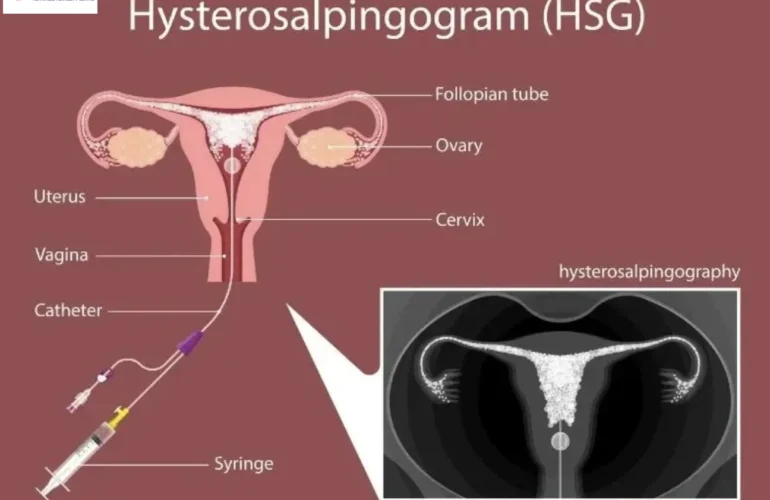
Is the HSG Test Painful? A Patient’s Step-by-Step Guide to Stress-Free Testing in Pune
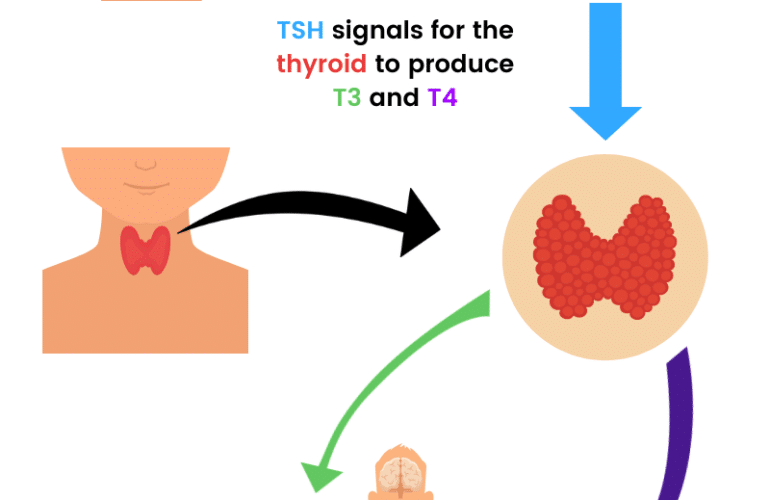
Autoimmune Thyroid Disease and Fertility: Diagnosis, Treatment, and IVF Success Strategies

Comprehensive Guide to Herbal Supplements for Fertility: Evidence, Dosage, and Safety
